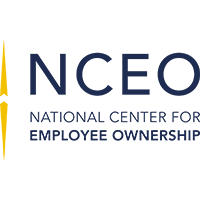Each year, the National Center for Employee Ownership updates its employer stock litigation review (the ESOP and 401(k) Plan Employer Stock Litigation Review 1990–2016). Over the last 12 months, there has been a significant decline in litigation on this front, with only 21 new cases reaching the court, by far the fewest in recent years. Seventeen dealt specifically with Employee Stock Ownership Plans, but only a few provided significant new guidance. Most dealt with legally non-controversial issues, such as distributions errors, attempts to set up ESOPs in companies with just one or two participants, and other administrative matters.
There were, however, some important decisions.
Standards of Review under the Dudenhoeffer Doctrine
The most important developments were in how the Supreme Court’s rulings on the Fifth Third v. Dudenhoeffer (Np. 12-751, U.S., June 25, 2014) would affect litigation. In that case, the Court dismissed the presumption of prudence for investing in employer stock that had long been the standard with a new pleading standard that required plaintiffs to plead a plausible alternative course of action for trustees that would not end up hurting more than helping. The standard clearly was designed with public companies in mind, but in two cases, it was applied by the courts to private companies, albeit in a very limited way. In public companies where prior decisions under the prudence presumption were remanded, the new standards have proven challenging for plaintiffs.
A number of cases were remanded after the ruling. In Tatum v. R.J. Reynolds Tobacco Co., No. 1:02-cv-00373-NCT-LPA (M.D.N.C, Feb. 18, 2016), a district court ruled for R.J. Reynolds, saying the fiduciary actions were reasonable under any standard of review. Similarly, in In re Lehman Bros. Sec. & ERISA Litig., No. 1:08-cv-05598-LAK (S.D.N.Y., July 10, 2015), the court ruled against the plaintiffs, this time saying they had failed to meet the heightened pleading standards that the Dudenhoeffer ruling set out. In Pfiel v. State Street Bank and Trust, No. 14-1491 (6th Cir., Nov. 10, 2015), the Sixth Circuit dismissed a claim by plaintiffs from GM arguing that GM stock should not have been an option in the company’s 401(k) plan, saying the efficient market theory provided that trustees could not be expected to outguess the market as to whether a particular stock is overpriced at any time. The Supreme Court declined to review the case in Pfiel. State Street Bank & Tr. Co., No. 15-1199 (U.S., cert. denied, June 27, 2016). The same logic was used to rule for the defendants in Coburn v. Evercore Tr. Co., N.A., No. 1:15-cv-00049-RBW (D.D.C., Feb. 17, 2016), with the court specifically rejecting the argument that a fiduciary should have known from publicly available information alone that a stock’s price was “over or underpriced.”
Amgen Inc. et al. v. Steve Harris (U.S. no. 577, Jan. 25, 2016) presented a more complex scenario. The Supreme Court for the second time reversed the Ninth Circuit’s decision on the prudence of continuing to hold employer stock in Amgen’s 401(k) plan. The Ninth Circuit on remand said that the fiduciaries should have removed Amgen stock, which would have the same effect on the market as disclosure of the potentially adverse information. The Supreme Court ruled that a plausible argument could be made along these lines, but “the facts and allegations supporting that proposition should appear in the stockholders’ complaint. Having examined the complaint, the Court has not found sufficient facts and allegations to state a claim for breach of the duty of prudence.” The Supreme Court said that the complaint needs to claim an alternative action that “a prudent fiduciary in the same circumstances would not have viewed as more likely to harm the fund than to help it.” The district court can now decide it if wants to allow the stockholders to amend their complaint.
The Dudenhoeffer ruling was also extended to private companies in two cases, also with unfavorable results for plaiintiffs. In Allen v. GreatBanc Trust Co., No. 1:15-cv-03053 (N.D., Ill., October 1, 2015), the court dismissed a lawsuit against GreatBanc Trust in its role as a fiduciary in an ESOP transaction at Personal-Touch Home Care in a valuation case. The Court referred to the Dudenhoeffer Supreme Court case in ruling that “absent an allegation of special circumstances regarding, for example, a specific risk a fiduciary failed to properly assess, any fiduciary would be liable for at least discovery costs when the value of an asset declines. Such a circumstance cannot be the intention of Rule 8(a), or Dudenhoeffer. An allegation of a special circumstance is missing in this case—in fact, we know absolutely nothing about the financial situation of Personal-Touch.”
In Hill v. Hill Brothers Construction Co., No. 314-CV-213SAA (N.D. Miss., Sept. 11, 2015), a district court dismissed the plaintiff’s claims of a breach of fiduciary duty by the plan’s trustees, holding that plaintiffs had not shown that, under Dudenhoeffer there was an alternative action that “a prudent fiduciary in the same circumstances would not have viewed as more likely to harm the [plan] than to help it.” The court noted that although Dudenhoeffer applied mostly to public companies, “that does not necessarily preclude the application of the alternative action pleading standard to closely-held entities.”
Disclosure
Two cases came to different conclusions about financial disclosure requirements. Murray v. Invacare Corp., No. 1:13-cv-01882-DCN (N.D. Ohio, 8/28/15 found that there was a duty to disclose, but In re BP P.L.C. Sec. Litig., No. 4:10-MD-2185 (S.D.-Tex, Oct. 30, 2015) found there was not.
Other Decisions of Interest
In Harper v. Conco ESOP Trs., No. 3:16-CV-00125-JHM (W.D. Ky., July 7, 2016), a district court ruled that employees of the bankrupt company Conco could not sell their stock for at least three years. The court affirmed a bankruptcy court’s ruling that was meant to give the company an opportunity to reorganize.
In Chesemore v. Fenkell, No. 14-3181, 14-3215, 15-3740, (7th Cir., July 7, 2016), the Seventh Circuit ruled that Alliance Holdings’ CEO David Fenkell had to indemnify the trustees of Trachte Building Systems. Trachte’s ESOP trustees, the courts argued, were controlled by Fenkell, thus making him a cofiduciary. The decision is at odds with rules for cofiduciary liability with the Eighth and Ninth Circuits.
In Perez v. Mueller, No. 13-C-1302, (E.D. Wis., May 27, 2016), a district court ruled that the Department of Labor could not make a blanket claim of privilege to prevent discovery of individual documents in an ESOP valuation case.
Finally, in Precise Systems Inc. v. U.S., No. 14-1147C (U.S. Court of Federal Claims, July 28, 2015), the court ruled that Precise Systems Inc. did not qualify for a service-disabled veteran-owned small business set-aside program. The company issued two “series” of common stock (A and B). Each share had one vote. A qualifying individual owned over 51% of the total voting shares. The ESOP shares, however, had an additional right pertaining to voting on a dividend and had a dividend preference. The company argued that they were the same class of shares, but the court agreed with the SBA and Office of Hearings Appeals rulings that they were two classes and, therefore, Precise Systems did not qualify.




 i
i

